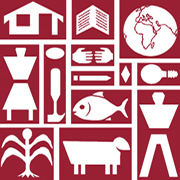 At the second CIE fall 2019 dialogue, Charles M. Schweik, a Professor in the School of Public Policy and the department of environmental conservation, described a model for digital sharing of library resources that he and a team of students had developed at UMass. The project is called World Librarians Project. Their model allows students and teachers in schools in remote rural areas that do not have access to the internet to use educational material on solar-powered laptops in their schools.
At the second CIE fall 2019 dialogue, Charles M. Schweik, a Professor in the School of Public Policy and the department of environmental conservation, described a model for digital sharing of library resources that he and a team of students had developed at UMass. The project is called World Librarians Project. Their model allows students and teachers in schools in remote rural areas that do not have access to the internet to use educational material on solar-powered laptops in their schools.
Dr. Schweik reported on the use of this approach with 20 schools in rural Malawi. He also shared his recent experience at a conference in Kenya where he found an eager reception to the idea and a willingness to set up a pilot project there.
The model works by providing each school or site with a RACHEL, a portable server and Wi-Fi hotspot device developed by World Possible, which comes pre-loaded with open-access educational resources—such as Wikipedia and Khan Academy materials. Using the local hotspot, students can then use solar-powered laptop computers to access the material stored on the local server.
 The UMass approach adds a unique capability for teachers at remote sites to make requests for specific materials using cell phones and twitter. A team at UMass searches for relevant, open-source materials, which are then sent to the schools to be put on the local server.
The UMass approach adds a unique capability for teachers at remote sites to make requests for specific materials using cell phones and twitter. A team at UMass searches for relevant, open-source materials, which are then sent to the schools to be put on the local server.
Dr. Schweik also discussed various challenges faced by the project, including how to finance the costs of finding and sending new material requested by the schools. He also commented on common problems of electricity, access to the internet, and limited bandwidth, that make communication difficult, especially in remote areas.
